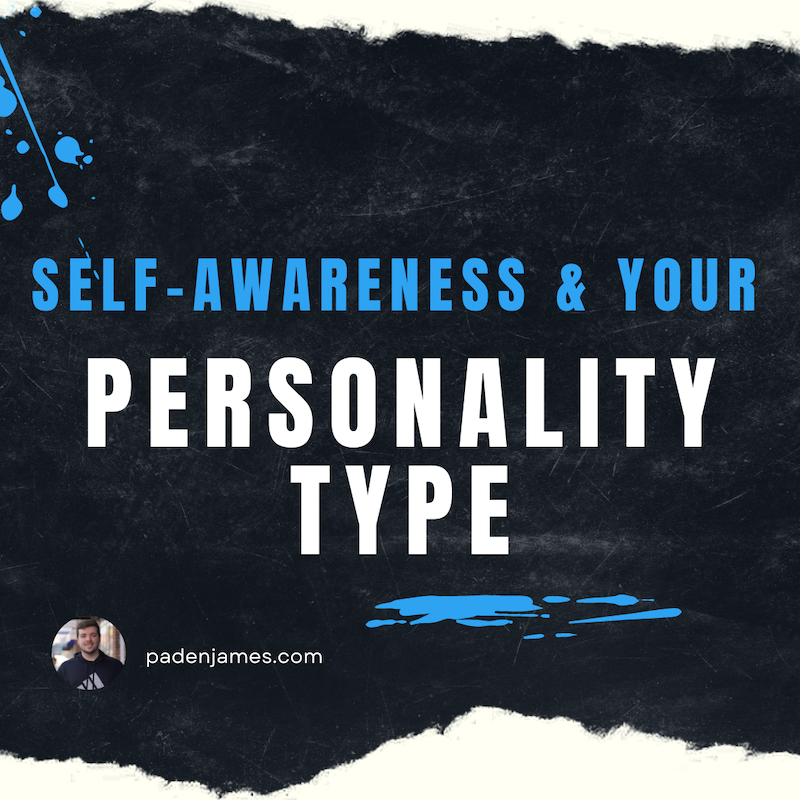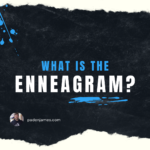One of the most profound insights I have gained during my personal development journey is the importance of developing self-awareness. Like many others before me, I started reading self-help and personal development books, doing all I could to implement the strategies and processes I learned about in those books. While the intentions were there, the follow-through didn’t always happen.
In fact, I would say that the vast majority of information and strategies/processes didn’t stick for me. I started to believe that either I wasn’t good enough or wasn’t cut out for making improvements in my life.
I’d think to myself, “So many people love [insert title of a book, course, system, etc.] and have had tremendous results – why can’t I seem to stick with it? What’s wrong with me?”
As I’ve learned more about the Enneagram and different personality types, I’ve realized that there isn’t something wrong with me; rather, I was trying to replicate another person’s (and type’s) processes, actions, and motivations.
If my motivation isn’t about getting as much done as efficiently as possible only for the sake of being productive and accomplished, I won’t resonate much with it as other types. If my motivation is not rooted in success and climbing the corporate ladder, I’m not going to care or resonate as much as I would with something that is more aligned with my core motivation. And there’s nothing wrong with this. It’s just a matter of understanding that we are driven by different motivations, and therefore we shouldn’t be placing expectations on ourselves or comparing ourselves to the results of those who have a life we don’t actually want.
As I write this, I envision time management and task-oriented methods, such as Getting Things Done by David Allen. A great system that makes a ton of objective and logical sense, but something that will be more challenging for me to stick with as a Type 9 than, say, a Type 1, Type 3, or Type 8, for example.
Of course, this goes beyond time management and efficiency. I’ve seen this manifest in replicating study practices, trying out new hobbies, learning new skills, personal development and mindset practices, meditation, exercise, finding the right job/career fit, and relationships with other people—all areas of life, really.
Having the self-awareness of your personality type, including your core motivations, as well as your interests, values, and goals/aspirations for life, will help you recognize why you may not be getting the results you want in specific life areas.
It will help you with:
- Better understanding why you are facing certain obstacles in your life
- Identifying when you’re under stress and in an unhealthy headspace versus when you’re doing well and in a healthy headspace
- Getting clarity about the most effective ways you can grow
- Figuring out how you can understand and connect with others on a deeper level
- Finding more fulfillment and alignment in what you do to ensure you’re proactively making the progress you want to make in life
For example, as an Enneagram Type 9, I’ve been able to identify where I have strengths (prioritizing peace, harmony, comfort, understanding, perspective, and positivity).
I’m now able to understand that many, if not most, people in my life do not value those things nearly as highly as I do.
They may hold higher value on getting things accomplished, or being more social and outgoing, outwardly expressing their emotions, and other areas in which I struggle.
We can all learn from each other and find great balance in integrating the perspectives of all types – the most important word here is finding balance and being the healthiest version of yourself.
As a Type 9, I’m not trying to only do “Type 9 behaviors” and put myself in a box. I’m also not using my type to excuse or justify my results or behaviors. Rather, I’m able to identify my strengths and weaknesses and how these relate to the obstacles in my life.
As an introverted person who is focused on my peace, comfort, and harmony, I don’t prioritize things in the same way as other types might.
By understanding my personality type, I’m able to address these weaker points. Not to ‘fix myself’ or try to become more like another type, but to have that awareness and to move forward accordingly.
This could mean navigating my professional life differently by aligning myself more to roles or companies that better utilize my strengths and align with my values.
It could mean implementing accountability to have better connections with those important in my life, or to be aware that the way I say or do things may come across differently than intended.
It could mean learning when I should set boundaries, speak up, or assert myself in scenarios where I have typically let the agendas of others take over.
Learning about the Enneagram helps develop better self-awareness, emotional intelligence, and compassion and understanding of others. This, in turn, fosters better connections, learning, growth, and impact in the world.
By learning about your personality type, you can identify your default, unconscious reactions, defense mechanisms, coping styles, motivations, fears, strengths, points of stress, opportunities for growth, and find ways to be more healthy and balanced in your life.
The beauty of the Enneagram is that it can be your self-awareness roadmap in these different life areas. Getting clarity on who you are, your values, and what you want in life will help guide you and keep you on track as you navigate life, careers, relationships, etc.



